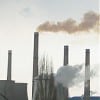Israel is faced with a growing water scarcity problem that one good rainy season will not solve


Israel is faced with a growing water scarcity problem that one good rainy season will not solve

GZA and COEJL to host a free webinar about the United Nations Conference on Climate Change in Durban

Aa diverse group of community leaders has joined the Jewish Energy Covenant Campaign

Sunday, November 6, 6:30 – 8:00 PM B’nai Jeshurun, 88th Street Sanctuary 257 West 88th Street (between Broadway and West End Avenue), New York, NY Meet Michael Kagan of The Jewish Climate Initiative in Israel. Michael has been an innovator and entrepreneur for 18 years. He has co-founded six high-tech companies, holds a doctorate in chemistry from Hebrew University of Jerusalem and is an inventor with twelve registered patents. This event is co-sponsored with Hazon.

10/10/10 is a globally acknowledged date to help bring awareness to the significance of climate change. It is all too appropriate that Shabbat Noah falls out on the same weekend. Our Shabbat and day of action is in participation with the 350.org campaign, an international effort that’s building a movement to unite the world around solutions to the climate crisis. September 2 , 2010 By Ilana Krakowski, a senior in the Double Degree Program between Barnard and the Jewish Theological Seminary and a committed Hazon intern If you received a divine message that the world and all of its living beings were to be destroyed, what would you do? Difficult, huh? In the story of Parshat Noah, we see that Noah remains silent when God tells Noah the plan for the Flood. Many readers of this Torah portion have perhaps, understandably, ridiculed Noah for his tacit acceptance of the world’s destruction. (more…)
October 6, 2010 By Jessica Haller, CIO for Hazon and Director of the Jewish Climate Change Campaign The vendor is calling, offering his hot roasted peanuts. The time is over 5000 years ago, and the place is central Mesopotamia. Noah’s contemporaries smell the peanuts and their mouths water. As they walk by, each takes a peanut, just one, just to taste. They aren’t really stealing, after all, it’s just a peanut. They continue to walk and as they pass the orchard, the just-ripe fruits also call to them, and they take an apple, just one, not really stealing. At the grain store, a few grains, just a taste. After a few days the peanut vendor is left with hulls, the orchard owner with bare trees. Years of not really stealing a little, a taste, a bite, and the erosion of morals is so great, according to Midrash, that God decides to start over. (more…)

10/10/10 is a globally acknowledged date to help bring awareness to the significance of climate change. It is all too appropriate that Shabbat Noah falls out on the same weekend. Our Shabbat and day of action is in participation with the 350.org campaign, an international effort that’s building a movement to unite the world around solutions to the climate crisis. August 23, 2010 By Dr. Mirele Goldsmith, environmental psychologist and sustainability consultant. Noah was 600 years old when God told him to build the ark. How the hell did he do it? We really don’t know. The Torah doesn’t say how Noah built the ark. It just says that God told Noah he had 7 days to get it done. And he did. What’s the message for us today? Why have we chosen the Shabbat when we read the story of Noah as the day to commit ourselves to take action on climate change? Because if Noah could do it, so can we. (more…)
By Daniel Bloom, Hazon Program Associate Traditionally on Chanukah we celebrate the curious episode of a jug of oil, enough for one day, miraculously burning for eight days. The rabbis debated the exact nature of the miracle. Amongst the many possibilities, one opinion suggests that the oil was divided into eighths, each of which burned for an entire day. Another opinion claims that after filling the menorah on each of the first seven nights, the jug remained full. It is apt that we will be thinking about burning oil when the world’s leaders meet in the coming days for the UN Climate Change Conference in Copenhagen. The Conference represents the best opportunity so far for the community of nations to tackle the issue of climate change on a global scale and discuss concrete plans and targets for the reduction of greenhouse emissions. Nonetheless, there is reason to be skeptical. First, we may assume that the leaders of the world’s nations lack the political will to commit to serious change, and second, that even if leaders were to make a commitment, a top-down nation-state driven campaign would have little impact in changing global emission patterns. These two claims are undoubtedly interrelated. […]
Dr. Mirele B. Goldsmith, Hazon board member Sukkot is my favorite holiday. I love spending time outdoors in the sukkah. And I love the joyful emphasis on thanksgiving and celebration. But the message of Sukkot is more complicated than it appears. Sukkot encourages us to appreciate and enjoy the bounty of nature, while at the same time it reminds us that life is fragile. Just like the sukkah, which will topple in a strong wind, we are vulnerable to the unpredictable forces of nature. The particular aspect of nature that we focus on during Sukkot is water. In the Land of Israel our ancestors were keenly aware of their dependence on rain. So while Sukkot is a celebration of the past year’s harvest, it is also a time to pray for the rain that will insure the harvest in the year to come. Each day during Sukkot we wave the lulav, a bouquet of plants associated with varied water sources, and call out to the heavens to save us with life-giving rain. By the final day of Sukkot our mood has changed. Cries of joy have become cries of desperation. By tradition this is the final day of the high […]

Rabbi Yedidya (Julian) Sinclair, Director of Education, Jewish Climate Initiative, and Hazon Rabbinical Scholar Recently I was asked an interesting question by an Israel environmental leader. “I was a bit surprised and somewhat dismayed,” he began, “to find out that the date chosen for the Copenhagen Planning Seminar was also Tisha B’Av.” A bit of background for the uninitiated: 1. The Copenhagen Summit in December is a gathering of world leaders that aims to bash out a successor agreement to the Kyoto protocol that will limit CO2 emissions going forward. It is widely seen as a critical moment in the global effort to address climate change. 2. The particular Seminar spoken about here is a gathering of Israeli environmental NGO’s that will propose an Israeli position for the Copenhagen Summit. Israel has not so far taken an official line on global warming. That is probably about to change. The new environment minister, Gilad Erdan, is one of the very few in recent years not to see the appointment as a consolation prize for not receiving a “real” ministerial job.” Erdan gets it. He understands that the environment really matters. The Tisha B’Av seminar includes a meeting with him. 3. Tisha B’Av […]
by Rabbi Yedidya (Julian) Sinclair, Hazon Senior Rabbinical Scholar The Copenhagen Summit in December is a gathering of world leaders that aims to bash out a successor agreement to the Kyoto protocol that will limit CO2 emissions going forward. It is widely seen as a critical moment in the global effort to address the threat of climate change. There is a remarkable groundswell of concern and activism in the world that is building in advance of this event. People everywhere are raising their voices, demanding that, this time, our leaders do right by the earth and by our children. In the Jewish community too, there is an awakening of passion and activism around this issue. The Shabbat of Parshat Noach, October 23rd-4th has been declared Global Climate Healing Shabbat and Hazon will shortly be going public with a Seven Year Plan for the people to address climate change and sustainability. How can the current period in the Jewish calendar help us to understand what’s going on and what’s at stake? We are in the middle of the three weeks that are bounded by the fasts of the 17th Tammuz until Tisha B’Av. Let’s first note they are two out of […]
By Rabbi Julian Sinclair, Hazon Rabbinic Fellow Yom Haat’zmaut. Here in Israel we celebrated Yom Ha’atzma’ut last week; fireworks, barbecues, mutual congratulations on how much we’ve achieved in 61 years (absorbing millions of immigrants, sustaining a vibrant democracy, building a dynamic economy, etc.), and a certain amount of soul-searching about how much we still haven’t: (peace, intra-Jewish harmony, a national soccer team that qualifies for the World Cup finals etc etc.). In honor of Yom Haatzmaut, I read a brilliant 500 page book; (rather sad, I know, but that’s the kind of kid I’ve always been…). Professor Alon Tal’s “Pollution in the Promised Land: an Environmental History of Israel” is the definitive work on the subject. In retrospect it was also the perfect read for the day. Tal’s book does much more than its subtitle claims. As you would expect it tells the story of how Israel’s rapid economic development has come at a high environmental price; it traces the roots of Israel’s current water crisis to bad planning and short sightedness in the early years of the State; one chapter relates the staggering success, or disastrous stupidity (depending on your perspective) of the JNF’s forestry policies. (The JNF planted […]
Friday, February 3, 2007 / 14 Shevat 5767 Dear All, The Intergovernmental Panel on Climate Change just issued a report which is front page news in nearly every paper in the world today. The Guardian’s summary is typical: The report predicts a rise of between 18 cm and 58 cm in sea levels by the end of this century, a figure that could increase by as much as 20cm if the recent melting of polar ice sheets continues. “Warming of the climate system is unequivocal, as is now evident from observations of increases in global average air and ocean temperatures, widespread melting of snow and ice, and rising global mean sea level,” the summary said. (more…)
